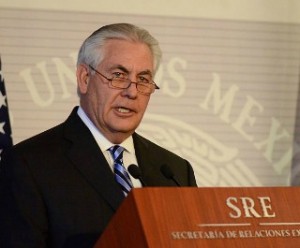
Our father, Arthur Stern (z”l), was a Holocaust survivor, so like many Jews, today’s Yom Ha’Shoah –
Holocaust Remembrance Day – touches us personally.
 Dad was born and raised in Hungary as a highly-educated and traditional religious Jew, whose
father was a prominent leader of the Budapest Jewish Community. While he studied law at the University of
Budapest in 1944, the Germans occupied Hungary, and our father and his family were deported to the Bergen-Belsen
concentration camp. Near the end of the war, he and surviving family members were sent to a refugee camp in
Switzerland where he began to put his life back together. He continued his education, and best of all, met our
mom Edith (he was her bridge instructor!), who had arrived in Switzerland as a refugee from Germany after
Kristallnacht. Since we were young, our parents shared many stories about their upbringing in Germany and
Hungary, the war, and its implications to their families.
Dad was born and raised in Hungary as a highly-educated and traditional religious Jew, whose
father was a prominent leader of the Budapest Jewish Community. While he studied law at the University of
Budapest in 1944, the Germans occupied Hungary, and our father and his family were deported to the Bergen-Belsen
concentration camp. Near the end of the war, he and surviving family members were sent to a refugee camp in
Switzerland where he began to put his life back together. He continued his education, and best of all, met our
mom Edith (he was her bridge instructor!), who had arrived in Switzerland as a refugee from Germany after
Kristallnacht. Since we were young, our parents shared many stories about their upbringing in Germany and
Hungary, the war, and its implications to their families.
Like many survivors, dad was able to miraculously “move on”, and spectacularly so. He became an accomplished
electrical engineer and inventor, and was the first Jewish president of the International Association of Electrical
Engineers, the world’s largest technical professional organization dedicated to advancing technology.
Dad applied lessons from the Holocaust to a commitment to human rights, equality and justice in the US and
in Israel.
While he saw Israel's survival and security as supremely important for the Jewish people, he believed that Israel's
conduct was just as crucial. As a Holocaust survivor, he saw both of these as fundamental. He started the
California-Israel Chamber of Commerce to help strengthen Israel’s economy, and his most central commitment to
Israel became his leadership role with Americans for Peace Now, where he served as a Board and Executive Committee
member and as co-chair, and then chair of its regional activities in Southern California.

His experience had led him to hold the Jewish people and Israel to the highest of standards with regard to their
use of power and treatment of others, believing we should rise above the tendencies and inclinations towards
suppression when confronted by obstacles. Dad found particularly abhorrent those in the Israeli settler movement
and their supporters who elevated land over human rights and peace, and particularly those who did so using Jewish
religious justifications. He would not sit idly by while such arguments were made and such actions taken. We
are loathe to imagine his disappointment in the recent “Regularization Law” that transfers ownership of private
Palestinian land in the West Bank to the Israeli Jewish settlers who took the land and established outposts
contrary even to Israel’s own law.
On this Yom Ha’Shoah, it is profoundly troubling to think about dad in the context of the “Entry Law,” recently
passed by the Knesset. This law, which prevents entry to foreign nationals who support peaceful protest by way of a
boycott, including a targeted boycott of Israeli settlement products, is beyond the pale for a democracy. It
ostensibly bars people from visiting Israel because they have different political views from those currently in
power. In this most absurd reality, our Holocaust survivor dad, who cared so much about Israel, would actually
be prevented from visiting Israel.
Americans for Peace Now has just decided to cancel its Israel Study Tour in June because of the "Entry Law." This
trip has particular significance to our family. Dad participated multiple times, a couple with our mom and with one
of us. Our parents gave the experience to a granddaughter as a college graduation gift, and soon after dad died, we
all made plans to join the next APN Israel Study Tour. The joy that dad experienced and enrichment he received from
being in Israel, meeting with leading Israelis and Palestinians from the political and activist worlds, the media,
and other areas, was a highlight in his life.
Today, as we remember the Holocaust and our dad who was so fortunate to survive it, we also remember the lessons
he learned and passed on to us, and we redouble our commitment to working for a better Israel, which proudly
manifests the best of Jewish values, and for a better world.
Sincerely,
Claude Stern, Daniel Stern, and Jacqueline Stern Bellowe

 Washington, DC - Americans for Peace Now (APN) commends Secretary of State Rex Tillerson and his
staff for acknowledging the important role that Israel’s civil society and particularly Israeli progressive
non-profit organizations play in Israeli society.
Washington, DC - Americans for Peace Now (APN) commends Secretary of State Rex Tillerson and his
staff for acknowledging the important role that Israel’s civil society and particularly Israeli progressive
non-profit organizations play in Israeli society.